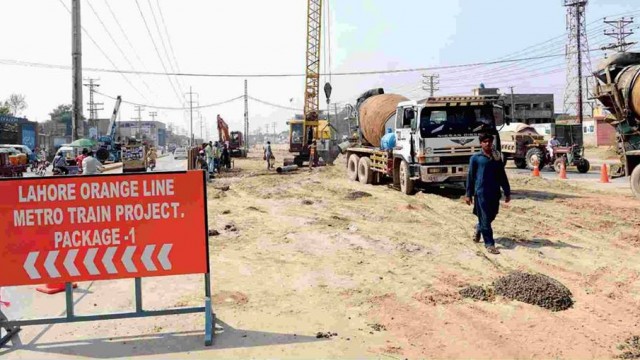Christian Community Wins Battle Of Protection Of Churches From Orange Line Metro Train
The Government of Punjab initiated a mass transit project of Lahore Orange Line Metro Train to apparently facilitate the masses and solve the current traffic problems of the city. This, on one hand seems to be a good project, however on the other hand it gave birth to various questions and concerns as well. The Orange Line Metro Train is being criticized by various circles in the country. The orange train is, according to the critics, a threat to the heritage and environment of the city as well as to the property rights of people.
The matter was agitated before the court of law by the civil society through a writ petition. The petitioners in the said petition challenged the entire project on several grounds including violation of laws regarding heritage protection, environment and land acquisition. The Honourable Lahore High Court Lahore was pleased to grant a stay-order to immediately stop constructions, demolitions and all kinds of similar activity within the radius of 200 feet of the heritage buildings.
Another writ petition titled Saleem Sylvester etc. vs The Govt. of Punjab etc. was filed by Arslan Ghous, Advocate High Court on the instructions of Cecil & Iris Chaudhry Foundation for the protection of the four churches in Lahore. It is pertinent to mention here that these four churches, namely Cathedral Church of the Resurrection (The Mall, opposite Lahore High Court), St. Andrew’s Church, (Nabha Road, Lahore), Nolakha Church (Near Railway Station), and Nicolson Road Church (near Railway Station), were being directly affected by the route of the train. The writ petition was filed for the enforcement of Article 20 of the Constitution of The Islamic Republic of Pakistan, 1973 which guarantees the fundamental right and freedom to profess religion and manage religious institutions.
The grievance of the petitioners was that the Lahore Development Authority LDA (executing agency of the said project) was carrying out the demolition and construction work near the churches which caused a serious threat to the said buildings. The petitioners, therefore, filed a writ petition through Advocate Arslan Ghous which was disposed of on 26th April, 2016 by the Division Bench of Lahore High Court after Mr. Shahid Hamid (Advocate from the Government side) stated that, “…none of the properties of the above mentioned churches was being acquired. However, the matter is under negotiations, regarding use of land of Nolakha Church with the Pastor of Church.”
The statement by Mr. Shahid Hamid was very clear and had no ambiguity at all. The government undertook that none of the properties of the churches would be acquired but his statement manifestly suggested that the government intended to use the land of the Nolakha Church for the purposes of works of the project. Careful analysis of the statement would reveal that the land of Nolakha Church can only be used if the Pastor gives express permission in this regard and not otherwise. It also burdens the Pastor with heavy responsibility of maintaining the sanctity of the worship places. The Pastor is now the one who has to either allow or disallow the government to use the land of the church for carrying out the said project. Further, it also suggests that the government would always seek permission from the Pastor of the church for the use of that land or any part thereof for the said project. The government is now, by virtue of its own statement in court, bound as it cannot interfere with the properties of the churches except with the permission of the pastors.
I would also like to draw the attention of the readers to another important point that the government, as per the statement given in court, is negotiationg with the Pastor for the use of land of Nolakha Church only. No other church has been required to allow the government to use its land for the said purpose to date.
Another important point raised by Advocate Arslan Ghous was that all four churches were ancient and fulfilled the criteria of being declared as protected heritage sites within the meaning of heritage laws of Pakistan. However, the government could not take any steps for their protection in this regard, hence it is discriminatory against the Christian community.
After hearing the detailed arguments of Advocate Arslan Ghous and recording statement of Advocate Shahid Hamid, the writ petition was disposed of.
The views expressed in this article are those of the author and do not necessarily represent the views of CourtingTheLaw.com or any organization with which he might be associated.


